Tuesday July 7th was Tanabata. The story of Tanabata come from an old Japanese fairy tale about the god of the sky, Tenkou and his daughter Orihime.
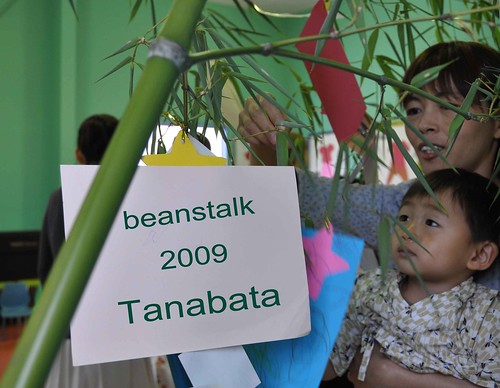
Orihime wove clothes for the gods all day everyday on a special machine called a Tanahata. It is believed that the word Tanabata came from the name of this weaving machine.
Tenkou was worried because his daughter did nothing but weave clothes all day every day. He decided that it would be a good idea if he introduced her to a man, and decided on a young man named Hikoboshi. He was a hardworking caretaker of cows who lived on the other side of the Amanogawa river. Amanogawa is “Milky Way” in English.
When Orihime and Hikoboshi met, they fell in love at first sight and spent all of their time together. They spent so much time together in fact, that they totally neglected their respective duties and as a result the cows became sick and the gods’ clothes became old and worn out.
This made everybody including Tenkou, the god of the sky and Orihime’s father quite mad and he forbade them from meeting each other anymore. Tenkou took his daughter back to the other side of the river and put her to work, but the two lovers were so distraught at being forced apart that they could not work at all. They could do little but stare across the Amanogawa river with a deep sense of longing.
Seeing his daughter so sad distressed Tenkou so he decided to allow Orihime and Hikoboshi to meet, but only one day a year, on July 7th, and only if they worked hard throughout the year. Knowing this, they worked as hard as before so they could meet on that one day each year.
Traditionally, people would wish for clear skies on on July 7th so that the two could meet over the Milky Way. If it rained on that day, the water level in the river would rise too high and the couple would not be able to meet because they could not cross.
People wished this by writing the wish on a piece of paper called a Tanzaku and hanging it on the branches of a bamboo tree. Nowadays people write their own wishes on the paper.
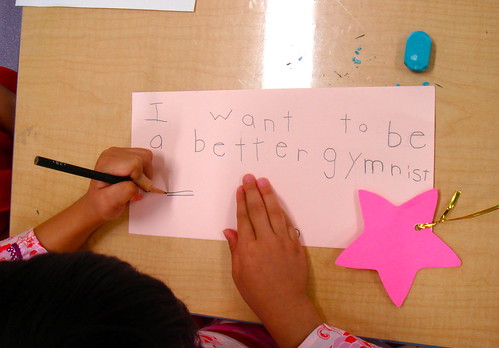
At Beanstalk the children wrote their own wishes in English and hung them on a big bamboo tree in the gym. Everybody wore their yukatas including the teachers, and some of the boys wore jinbeis. Everybody looked really nice all dressed up in their traditional garb.
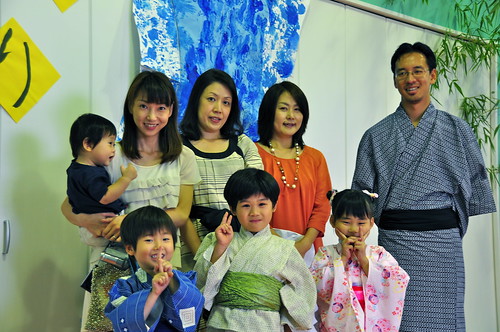
If you look closely below you can see “tanabata matsuri” written in calligraphy on yellow paper on the wall behind the students. Believe it or not, the Deedee Deer students wrote those themselves during their shuji classes every week.
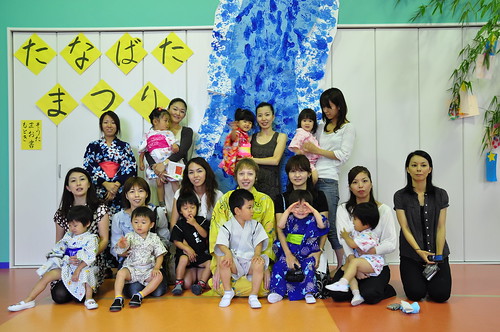
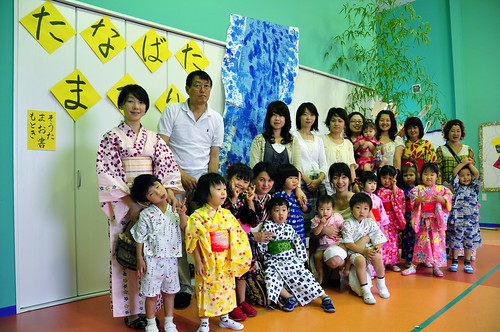
After arriving and getting changed into our yukatas, we all sat down and wrote out our wishes on the tanzaku. After that we moved to the gym and performed the songs that we had been practicing for a few weeks. First, Missy Mouse and Deedee Deer class sang Twinkle Twinkle Little Star. Then Robby Rabbit class sung Mr. Sun, which is a song that was new to all the parents so it was a lovely surprise. After that, Deedee class sang It’s a Small World and then all the students joined in and sang the Tanabata song together.
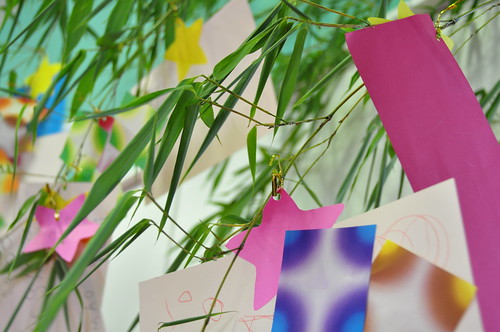

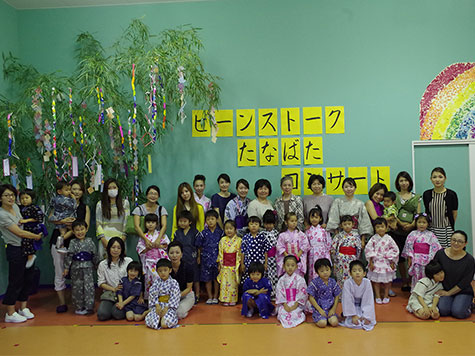
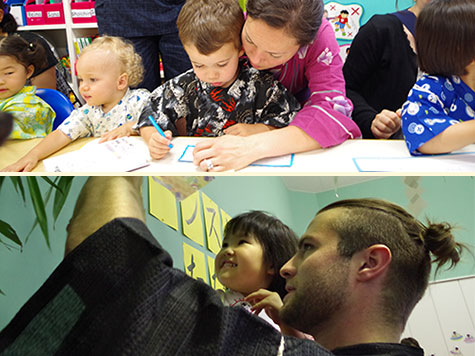
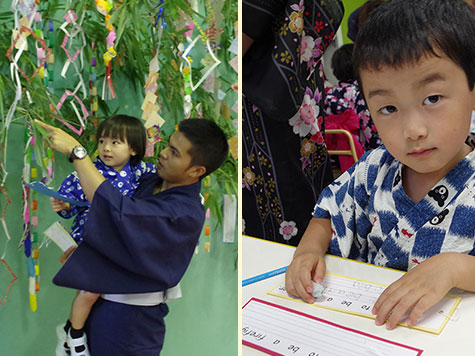
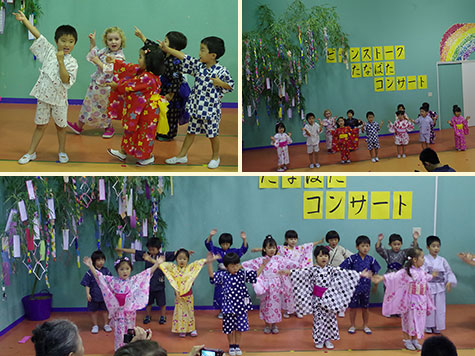
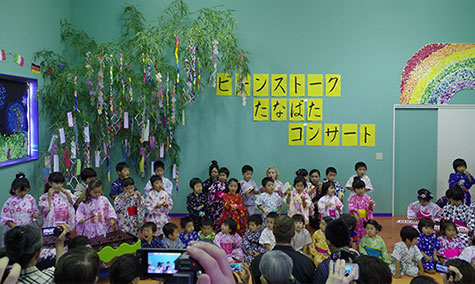
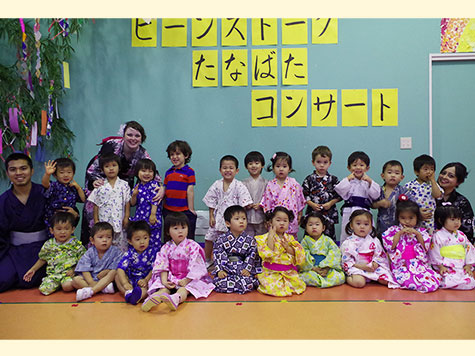
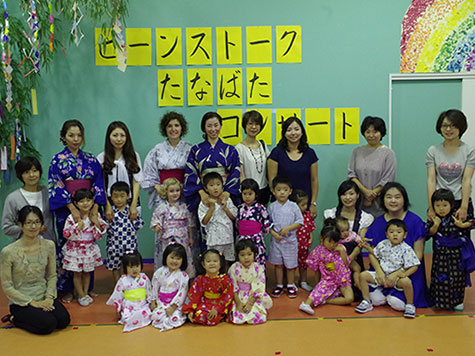
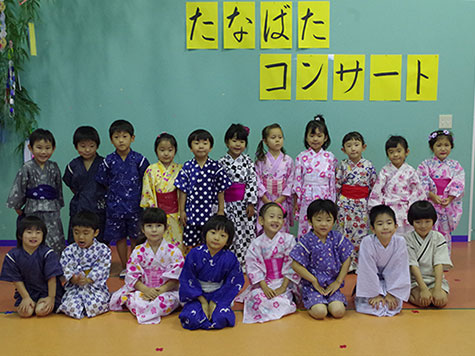
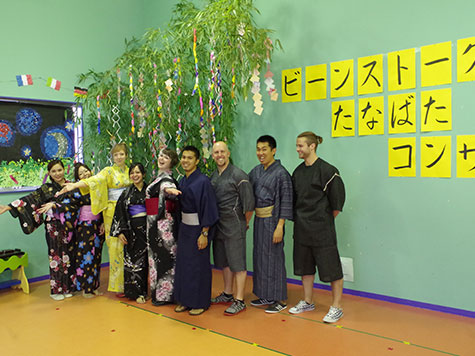
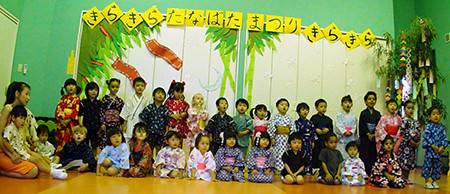


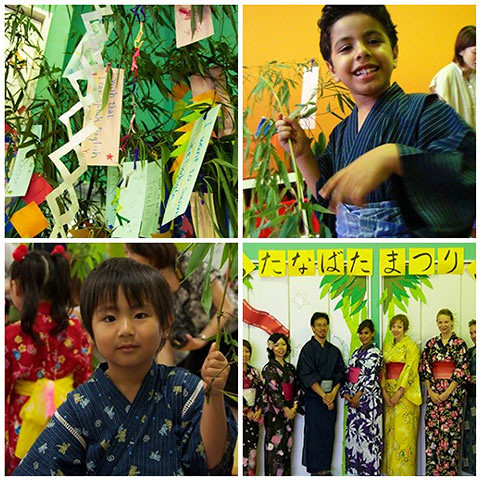
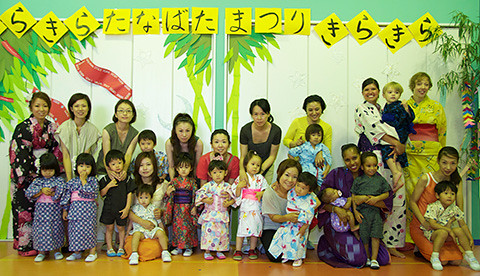
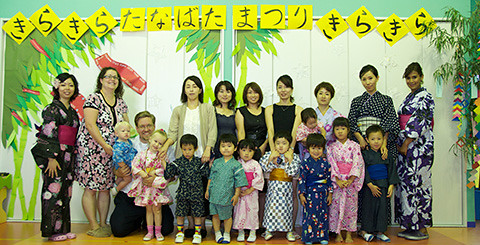
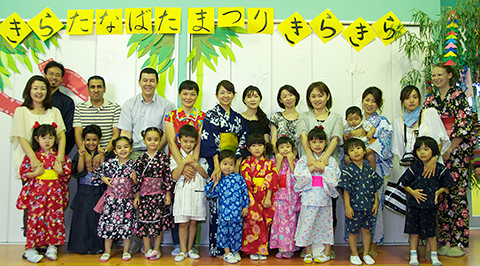
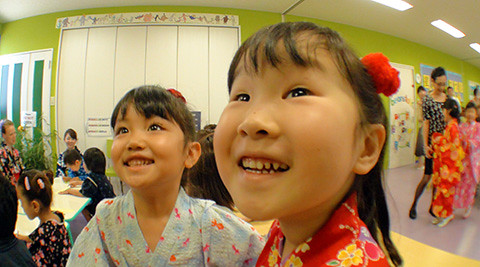
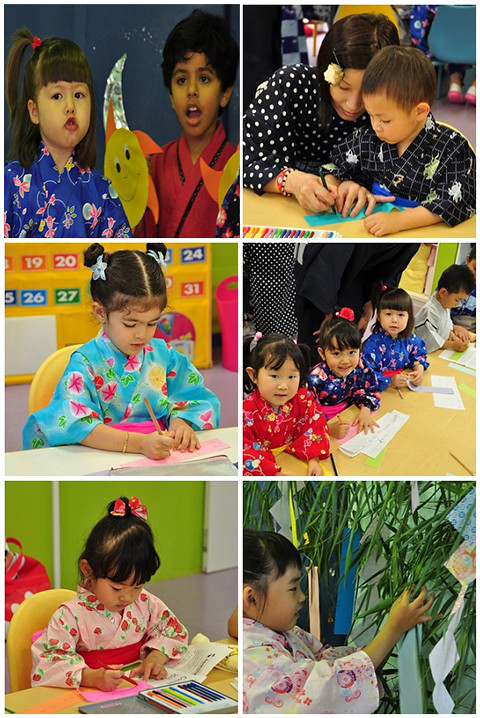
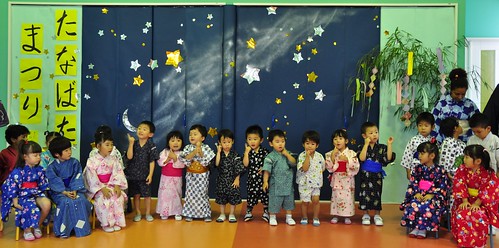
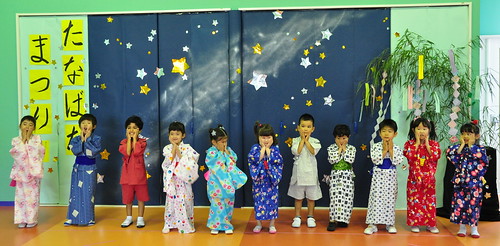
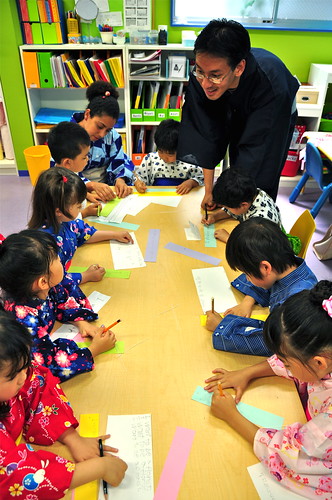 When Orihime and Hikoboshi met, they fell in love at first sight and spent all of their time together. They spent so much time together in fact, that they totally neglected their respective duties and as a result the cows became sick and the gods’ clothes became old and worn out.
When Orihime and Hikoboshi met, they fell in love at first sight and spent all of their time together. They spent so much time together in fact, that they totally neglected their respective duties and as a result the cows became sick and the gods’ clothes became old and worn out.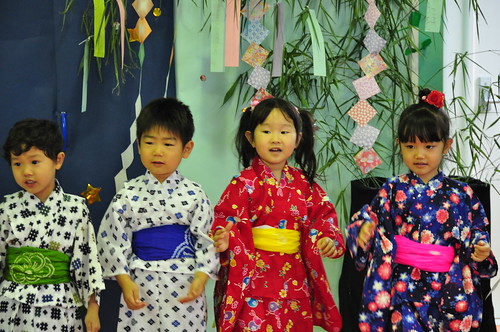







 First off we had a short observation lesson so the parents could see how their children are progressing in their studies.
First off we had a short observation lesson so the parents could see how their children are progressing in their studies.